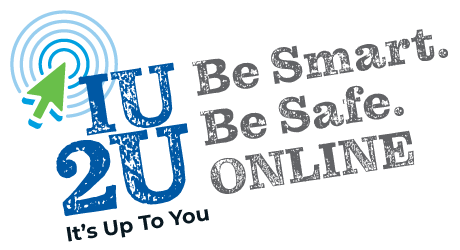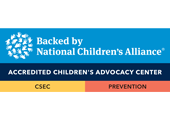Parents + Caregivers
Keep Kids Safe ONLINE
From the time they are very young, children learn from parents about safety: fire safety, crossing the street, talking to strangers, and how to respond in an emergency. When teens are learning to drive, they go through driver’s education to learn the rules of the road and to drive safely for themselves and others.
And yet, we have been left to our own devices to be safe in an ever-expanding world that we are all navigating: the online world. The time we spend online fulfills many needs, such as work, school, entertainment, connecting with new and old friends, and learning. However, like the real world, there are also dangers and lessons to learn about safety online. It’s up to you to stay safe online.
Regularly discussing the online world will help you and your family remain safe online.
Talk about internet safety and develop an online safety plan with your children. Have conversations together about your family rules for being online. Discuss the red flags you want them to tell you about and have regular and ongoing conversations about their internet activities.
- Be involved in their online worlds, which are increasingly becoming a large part of their lives. Periodically checking your children’s social media profiles and posts, internet activities, and online friends is equally important to being involved in their sports, homework, and friend groups.
- Establish rules that electronic devices stay in open, common areas of the home, and consider limiting time for internet-enabled devices in private areas like bedrooms and bathrooms.
- Ensure you are aware of your children’s online privacy settings and use parental controls for online games, apps, social media, and gaming devices for younger children. Have conversations and establish rules, communication, and trust with teens in their online worlds.
- Remind children that personal information, photos, and videos online are permanently on the internet, even if they “disappear.” Every image and video can be captured, saved, or shared forever. Discuss that even if someone they meet online may seem to be someone similar in age, they do not know them in real life and may not be who they say they are.
- Encourage children to tell a parent, guardian, or other trusted adult if anyone asks them to engage in sexual activity or other inappropriate behavior.
It’s Up to You to You to Keep Your Children Safe Online. Make the commitment to yourself and your family to have conversations about online safety.
Discussing the reality of online risks is the responsibility of the parent/caregiver. Here are some quick tips to help reduce the risks of exploitation online for your child.
Safety Means Involvement
Know all of children’s passwords, screen names, and all account information. Know who each person on their friend/ follow list is someone they know in person and have been approved by you. Remind your children that the people they meet online may not be who they say they are.
Keep Eyes On
Make sure you, as the parent, are added to your child’s friend / follow list and that their profiles are set to “private.” If you are unsure whether your child has a profile, conduct a simple online search through the site or by typing their name into a search engine. Regularly check their phones/computers/mobile devices, just as you would check their rooms or possessions for safety.
More Than Just a Selfie
Photos and videos are the primary ways kids and teens communicate online. These images may make your child vulnerable to online predators, cyberbullies, and strangers, or lead to damaged reputations. Check regularly that any photos/videos do not contain any personally identifiable information, or give away where you and your child live.
The Internet is Forever
Remind your children to think before they post: there are no take-backs online. Nothing is truly private on the Internet; any and all information sent or posted online is public or can be made public.
IRL (In Real Life)
Tell your children they should never meet with or call someone they’ve only met online in real life. Tell them they need to talk to you if anyone makes them feel scared, uncomfortable, confused, asks for any personal or personally identifiable information, or suggests meeting them.
I sent a nude…
If your child discloses they sent a nude image, were a victim of online sexual exploitation or sextortion, the first step is to remain calm. Even if you are angry, scared or frustrated, showing your child you’re calm and know what to do is important. Don’t take quick action such as deleting images or messages; these may be important to effectively report and get help. Visit our Get Help page for next steps.








